"Hurrah!", "Geronimo!", "Banzai!" and others. How the famous battle cries appeared
Categories: History
By Pictolic https://pictolic.com/article/hurrah-geronimo-banzai-and-others-how-the-famous-battle-cries-appeared.htmlA battle cry is a special word or phrase that has great power. They are able not only to rally their comrades and inspire them to a feat of arms, but also to frighten the enemy. At a minimum, the cry helps to distinguish one's own from others in the confusion of a brutal battle. Armies of different countries, rebels and even terrorists have been using them since ancient times. How did the most famous battle cries appear and what do they mean?
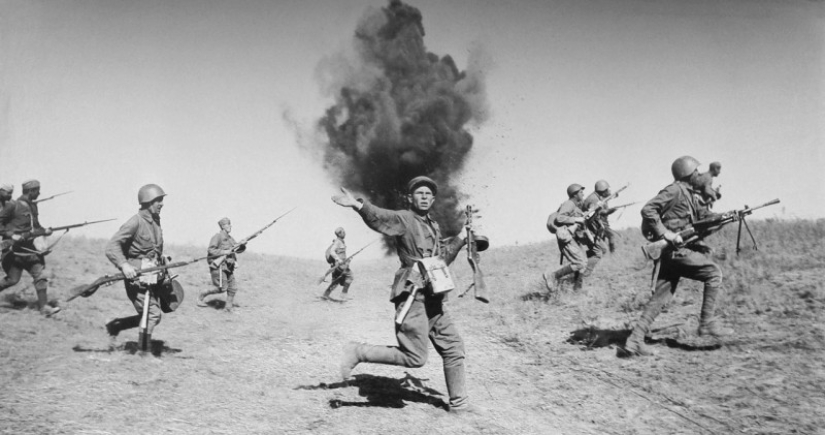
The simple and short cry with which the Russian army has been attacking for hundreds of years is actually full of riddles. There are at least a dozen variants of the origin of "Hurrah!", but only two are more or less plausible. Philologists have noticed that in English and German there are consonant nicknames: Hurra, Hurrah, Oorah, Hooray. This gives the right to assume that ours has a common origin with them.
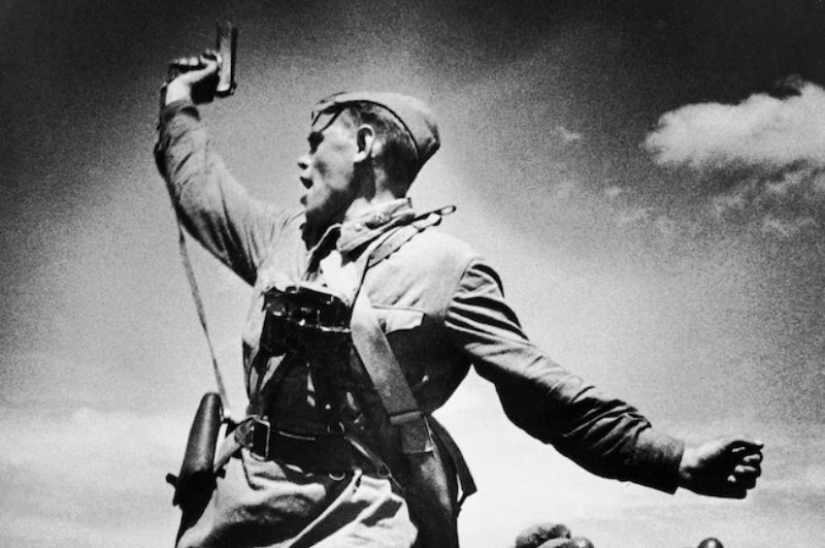
The first version says that the expression appeared during the existence of the Middle High German language. It had the word hurren, meaning "to move quickly, to hurry." In this case, our cry has distant relatives — the English verb to hurry — "hurry" and the German adjective hurtig — "fast".
The second version is closer and clearer to us. It is based on the definition given in the dictionary of Brockhaus and Efron. It states that "hurrah" comes from the Turkic ur - "beat!". That's how the Mongol-Tatar warriors shouted, encouraging themselves before the attack. It is quite possible that the Tatars gave us the cry, as well as many other words of the Russian language.
The trademark cry of Japanese samurai "Banzai!", oddly enough, has Chinese roots. In the era of the Tang Dynasty, which ruled the Middle Kingdom in the 7th-10th centuries, the cry "Wu Huang wansui!" was popular. It meant something like "Let the emperor live 10 thousand years." But it was inconvenient to shout out such a long phrase. Therefore, very soon it turned into a laconic "Wansui!".
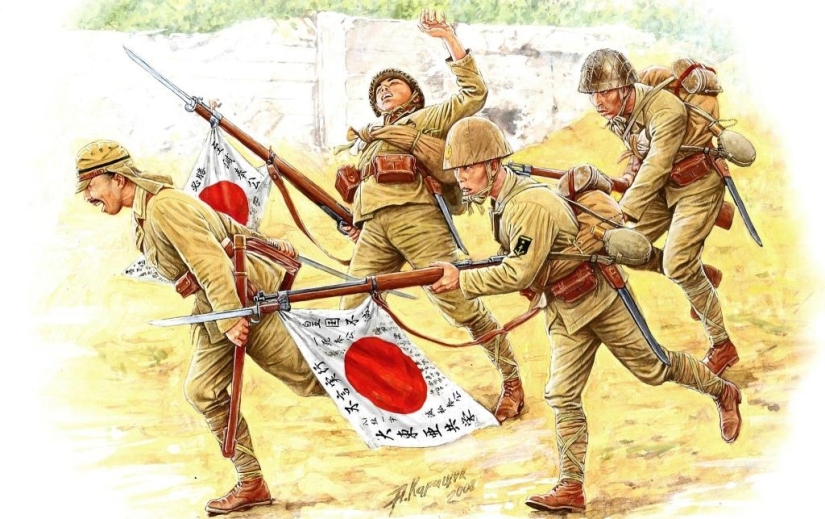
Residents of the Japanese islands borrowed it from their neighbors and changed it in their own way — "banzei". At the same time, it meant the same thing — wishing the emperor a long life. The modern form of the "Banzai!" cry was acquired only in the 19th century, during the reforms known as the "Meiji Restoration". The expression ceased to be used only as a wish to the emperor. Sometimes it is even deciphered as "may freedom be eternal."
There are also known "banzai attacks", in which the Japanese military went. It was a strange mixture of psychological attack and suicide, as the fighters rushed at the enemy with firearms with swords and bayonets. Such a maneuver usually ended with huge losses for the attackers.
The French expression "On ne passe pas!" or "They will not pass!" appeared thanks to General Robert Nevel. The French commander said it in 1916 during the battle with the Germans near Verdun. Thanks to the artist Maurice Louis Henri Newmont, the phrase appeared on campaign posters. And in 1917, this cry was used with might and main by French and even Romanian soldiers.
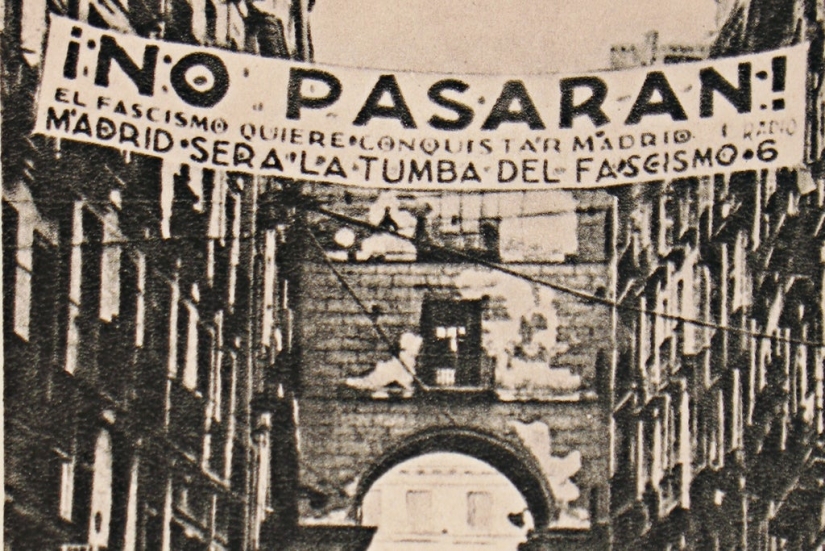
After the end of the First World War, this slogan was almost forgotten. He was able to return thanks to the Communist Dolores Ibarruri, who proclaimed him in 1936 during the defense of Madrid. The cry became popular with communists all over the world, but it sounded completely Spanish "No pasaran!".
The truly American cry "Geronimo!" appeared thanks to the Indians. Geronimo was the name of a legendary warrior from the Apache tribe. More precisely, his name was Goyatlay, but after the storming of the Indian camp by the Mexicans in 1851, everything changed. The defeated enemies fled from the Redskins, shouting the name of St. Jerome in horror. The Indians liked it and from now on Goyatlaya was nicknamed that way.
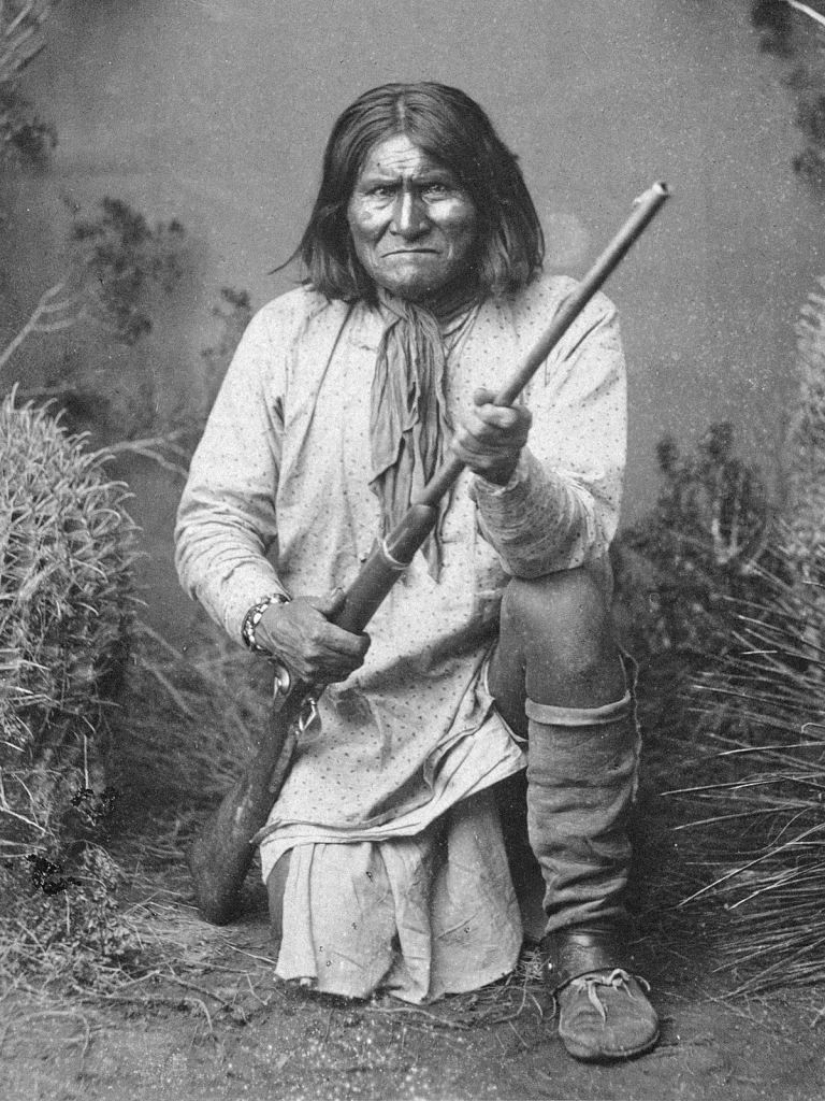
Despite the fact that Chief Geronimo selflessly defended the Apache lands from white colonizers, the military began to use his name as a cry. It happened with the light hand of film director Paul Sloan, who presented the western "Geronimo" in 1939.
The film was seen by privates of the 501st Airborne Regiment from Fort Benning. Soon it occurred to one of the paratroopers to shout "Geronimo!" before jumping with a parachute. The cry was immediately picked up by colleagues, and after a while it spread throughout the American army. By the way, the nickname of the Indian chief Goyatlaya is generally very popular in American popular culture.
For most people around the world, the cry "Allahu Akbar!" does not cause any positive emotions. This is due to the fact that it is often used by Islamic terrorists during their attacks. But in fact, there is nothing terrible in this phrase. "Akbar" is the superlative of the adjective "kabir", that is, "important". Therefore, this cry is translated as "Allah is the Greatest."

This phrase is also used in peacetime. It can express joy for some reason and is similar to our "Thank God!". There is "Allahu Akbar" in the old hymn of Libya, as well as in the form of inscriptions on the flags of Iraq and Iran.
There are many interesting stories associated with battle cries. For example, the fighters of the penal battalions of the Red Army deliberately distorted the motto "For Homeland! Behind Stalin!" when they went on the attack.
Recent articles

It's high time to admit that this whole hipster idea has gone too far. The concept has become so popular that even restaurants have ...

There is a perception that people only use 10% of their brain potential. But the heroes of our review, apparently, found a way to ...

New Year's is a time to surprise and delight loved ones not only with gifts but also with a unique presentation of the holiday ...